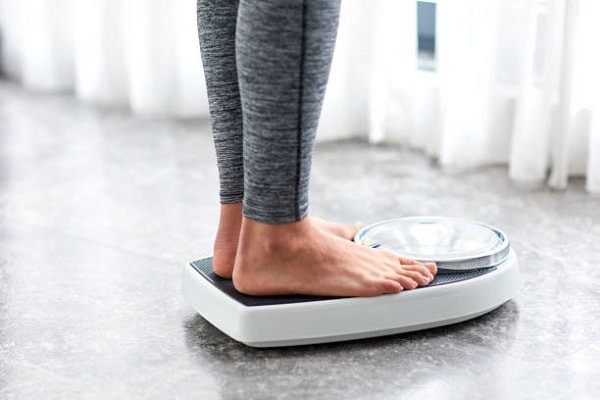How Effective Are Diet Apps for Weight Loss?

Diet tracking apps for weight loss success
When weight loss is the goal, some people can lose it with no issues surrounding their relationship with food.
However, others aren't as lucky and can develop eating disorders during the process. This is a serious issue that obviously needs to be prevented for the whole population.
In some research, those with eating disorders have been found to track their dietary intake at a higher rate than those without eating disorders, and have said they think their app is what causes their eating disorder symptoms.
But when other researchers saw this, they wanted to investigate these findings further: is it actually the diet tracking app that leads to these disorders, or is it that people with existing eating disorders then start using these diet tracking apps? Or is there another more complex relationship they're not aware of?
With all of this in mind, a new study into women (but this time a randomised controlled trial, the gold standard of scientific research) was conducted.
The researchers hypothesised that women who were asked to self-monitor their dietary intake would report an increase in eating disorder risk compared to women in the control condition. They also hypothesised that having to track their diets would "lead to poorer mental health outcomes given the impacts of self-weighing on mental health among this population."
And it wouldn't be a good finding for diet tracking apps if this was found to be true but illuminating for the fitness and general public community all the same.
But before we get to the results, to process to find (and study) the women, was a good one.
The scientists sent out emails to 4601 female undergraduate students, informing them they were recruiting for a study examining the impact of mobile app diet tracking on the wellbeing of college students. They said nothing about eating disorders so that it didn't influence the research findings.
The women emailed were eligible to participate if they were undergraduate students, fluent in English, had a smartphone, and were at least 18 years old. If they had a history, or current, eating disorder, they couldn't take part.
Of the 4,601 female students emailed, 808 completed the screening survey, and 411 were eligible for participation.
In the end, 200 participants were randomly assigned to one of two groups:
Group one: tracked their diet for a month using a smartphone app.
Group two: the control group. They maintained their normal eating habits and didn't monitor their diet.
For the next month, group one was instructed to log everything they ate or drank on a smartphone app right away for the following month. But the control group was told to carry on eating and living the same as usual.

Eating disorder risks and behaviours were assessed, along with depressive symptoms, state anxiety, body image, overall quality of life, and nutrition and physical activity behaviours. Other questions were asked to discover their social media use, screen time, physical activity self-monitoring, and self-weighing frequency.
So, what did they find?
There was no significant difference between both groups on the eating disorder questionnaire.
In fact, scores were actually a little lower in the smartphone app tracking group.
There were also no significant differences between groups for any individual eating disorder behaviours, and no significant differences between the groups for state anxiety, depressive symptoms, body image, or quality of life.
So, whilst the aforementioned observational research has found diet tracking apps to correlate with eating disorders, this study, a randomised controlled trial and thus a far better indication, didn't report the same finding.
So, it's not the diet tracking apps causing this in the observational studies, it's that the people using them likely have the disorders in the first place and are using the apps to try and get into better shape.
It's a good finding for people who are considering using diet tracking apps to lose weight: the evidence suggests it's not going to cause you any eating disorder issues that aren't already present!
And given these apps allow you to diet with flexibility, it means you'll be able to eat what you like on your terms, rather than adhering to strict and "rigid" dieting approaches, that have themselves caused issues surrounding negative relationships with food.
The bottom line on diet tracking apps
Diet tracking apps are an efficient way to diet with flexibility and lose weight by eating the foods you want. This randomised controlled trial demonstrates that when subjects are all devoid of any poor relationships with food or eating disorders, a diet tracking app does not create them.
This is contrary to poorer designed studies that have found the opposite but are inferior when it comes to drawing a more solid scientific conclusion. If weight loss is your goal, consider using a macronutrient-tracking diet app tuned to a 20% calorie deficit for reliable results.

Dayne Hudson
Like many, Dayne was once desperate to lose weight and get into shape. But everyone he asked, everything he read, lead to the same place... nowhere.
His journey started there - researching science journals and completing a Sports Nutrition Specialist qualification so he could make weight loss easier.
References:
- Hahn SL, Kaciroti N, Eisenberg D, Weeks HM, Bauer KW, Sonneville KR. Introducing Dietary Self-Monitoring to Undergraduate Women via a Calorie Counting App Has No Effect on Mental Health or Health Behaviors: Results From a Randomized Controlled Trial. J Acad Nutr Diet. 2021 Dec;121(12):2377-2388. doi: 10.1016/j.jand.2021.06.311. Epub 2021 Aug 20. PMID: 34427188.
- Levinson CA, Fewell L, Brosof LC. My Fitness Pal calorie tracker usage in the eating disorders. Eat Behav. 2017 Dec;27:14-16. doi: 10.1016/j.eatbeh.2017.08.003. Epub 2017 Aug 18. PMID: 28843591; PMCID: PMC5700836.
- Stewart TM, Williamson DA, White MA. Rigid vs. flexible dieting: association with eating disorder symptoms in nonobese women. Appetite. 2002 Feb;38(1):39-44. doi: 10.1006/appe.2001.0445. PMID: 11883916.
Related Blogs

Choosing a Protein Powder for Weight Loss
Posted by Mason Brezinscak
Estimated reading time: 5 minutes

The Ultimate Guide to Amino Acids
Posted by Nick Telesca
Estimated reading time: 33 minutes

How to Structure Cardio and Calories During a Fat Loss Diet
Posted by Ben Disseldorp
Estimated reading time: 6 minutes



























